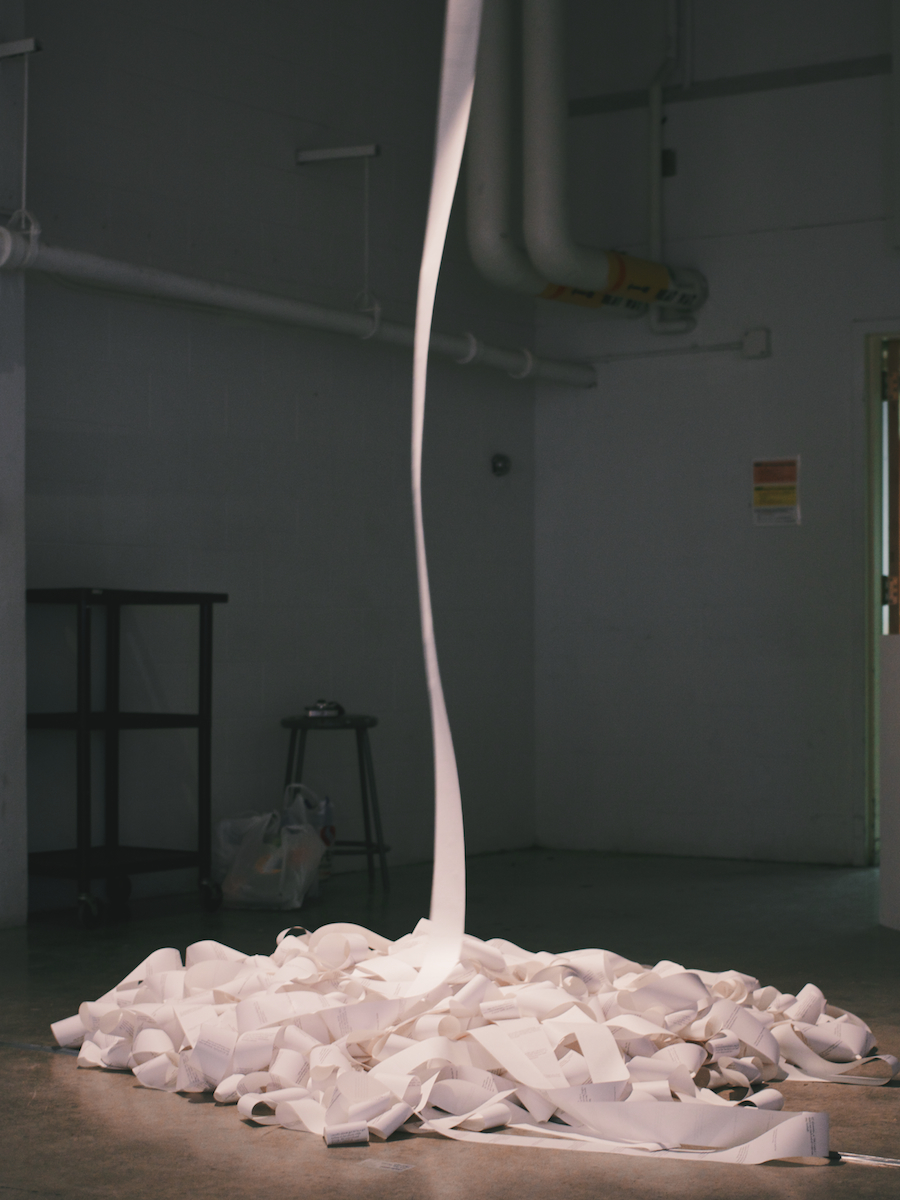Jon Bell, on his “McDonald’s Theory”:
The next time you have an idea rolling around in your head, find the courage to quiet your inner critic just long enough to get a piece of paper and a pen, then just start sketching it. “But I don’t have a long time for this!” you might think. Or “the idea is probably stupid”, or “Maybe I’ll go online and click around for-”
No. Shut up. Stop sabotaging yourself.
Dustin Curtis, on a similar theme:
The future is extremely hard to see through the lens of the present. It’s very easy to unconsciously dismiss the first versions of something as frivolous or useless. Or as stupid ideas.
Both are excellent articles centred around early drafts. Bell’s tackles the internal perception of an idea, and the difficulty in making that a reality. Curtis covers others’ initial derision to unique ideas.
I recently had experience with both of these facets. A few months ago, I began work on a sculpture which polled Twitter in real time, looking for tweets containing phrases of a confessional nature. It would then print a tweet every thirty seconds using a receipt printer, which would be hung well above the gallery floor to create a cascade of others’ anonymized confessions.
I didn’t know where to begin this piece. Initially, this was going to output to a display because it would be easier, but I knew that it was a cop-out. Finding a receipt printer was massively difficult, too: receipt printers are designed to have bulletproof reliability, so they’re around $300, and most still use a parallel port. Throughout the development process, half the people I told this idea to wrote it off, or were uninterested. Even hanging it in the gallery was more difficult than it needed to be.
Everything seemed to conspire against this project, but I eventually finished it. “Confessional” was done.

When the gallery held the reception for this group show, this piece was widely admired. Crowds gathered around the bottom to read out old tweets from the pile that built up. It satisfying and thrilling to see my stupid idea become a fairly respectable reality. That’s the reward I received for sticking with something I knew to be worth the effort. I highly recommend the resulting feeling.
